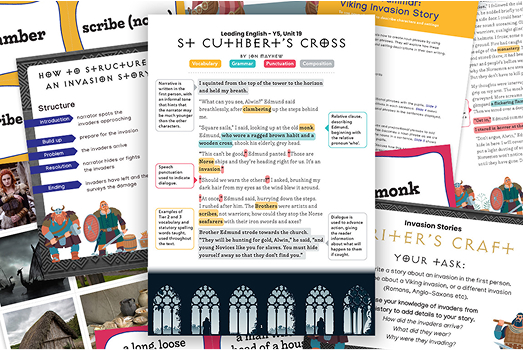When I visit schools, I often see curriculum overviews and ‘roadmaps’ proudly displayed – sometimes even laminated. Leaders take comfort in these documents, believing they demonstrate curriculum ambition and coverage.
But here’s the truth: those documents alone aren’t a curriculum. A curriculum is what happens in classrooms every day. Medium-term plans are what really guide success in writing.
Writing progression isn’t about ticking off genres or themes. It’s about coherence – those carefully planned small steps that build pupils’ confidence and independence. It’s about sequencing that moves pupils from imitation to original thought. This detail lives in medium-term planning.
The new Writing Framework is clear: writing must be centrally led and systematically sequenced. Without this, individual teachers fill the gaps on their own, often under huge pressure.
And in writing, lost ground is hard to regain. When planning varies, so do outcomes. Medium-term planning isn’t an optional extra; it’s the foundation for a high-impact writing curriculum.
From experience: what can go wrong
Over 15 years ago, when I was an English subject leader, I joined a school where year group teaching teams loved their ‘freedom’. In reality, this meant no medium-term plans existed.
While the teachers crafted brilliant lessons, they struggled to sequence learning effectively. I remember a tense joint planning session where confusion and frustration were clear.
Without a plan, teaching felt like setting off from Cornwall to Aberdeen without a map or agreed mode of transport. You might get there eventually – just by heading north – but is that the best or easiest way? Are you making the journey unnecessarily stressful?
What makes medium-term planning powerful?
Medium-term plans translate big curriculum ambitions into what happens in classrooms. They sequence vocabulary, reading, sentence structure, grammar and spoken language. They break writing down into manageable steps and build fluency over time, ensuring every pupil experiences the right balance of challenge and support.
Teachers are talented, but they shouldn’t have to design an entire curriculum alone. Medium-term plans create a shared foundation, freeing teachers to focus on pedagogy, personalisation and relationships with pupils.
The Writing Framework emphasises this clearly: your writing lead needs to be an expert in your school’s writing curriculum and plan a well-sequenced curriculum across all year groups. Long-term maps or overviews alone won’t cut it.
Five principles to shape medium-term planning
The Writing Framework sets out key priorities. Leaders building or refining medium-term plans should keep these in mind:
- Start with clear end points. Define what success looks like at each year level, then work backwards to map the knowledge and skills pupils need to get there.
- Integrate grammar, vocabulary and composition in ways that build cumulatively. Concepts should return and deepen over time, not appear in isolation.
- Sequence learning to manage cognitive load. Start with oral rehearsal and vocabulary. Build sentence-level skills before moving to full compositions.
- Build spoken language from the start. Talk supports writing development, so include explicit oracy activities like storytelling and sentence imitation.
- Plan for stretch and support. Challenge and scaffolding must both have a place. Medium-term plans should show where pupils can be stretched and where extra help is needed.
Creating strong medium-term plans takes hundreds of hours and considerable expertise. It’s not a task for one person or a quick fix. At Leading English, we’ve been through this process step by step. Our programme offers over 150 adaptable, structured medium-term plans, fully mapped to the national curriculum and aligned with the Writing Framework.





